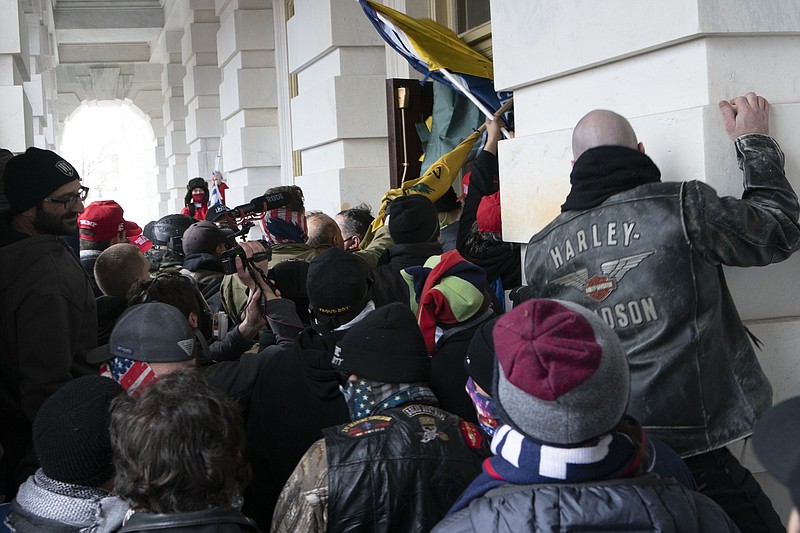WASHINGTON (AP) - More than 400 people have been charged with federal crimes in the Jan. 6 attack on the Capitol. But prison time may be another story.
With new defendants still flooding into Washington's federal court, the Justice Department is under pressure to quickly resolve the least serious of cases. While defendants charged with crimes such as conspiracy and assaulting officers during the insurrection could be looking at hefty sentences, some members of the mob who weren't caught joining in the violence or destruction could see little to no time behind bars.
"The people who were just there for the ride and somewhat clueless, I think for most of them they probably will not get prison time. And for what it's worth, I think that's appropriate," said Rachel Barkow, a professor at the New York University School of Law. "Having a misdemeanor on their record, going through all this is probably a pretty big wake-up call for most of the folks."
The siege was like nothing the country had ever seen, as the mob of supporters of then-President Donald Trump descended on the Capitol to stop the congressional certification of Joe Biden's election victory. But in the months since, Trump loyalists have worked to minimize the assault, while Democrats and others want justice for what they saw as a crime against democracy and the rule of law.
After Trump's impeachment by the House resulted in an acquittal by the Senate, these criminal cases are one possible route for justice.
It's a formidable task for lawyers and judges alike to determine the appropriate punishment to seek and hand down. Many defendants had steady jobs and no criminal records, factors typically rewarded with leniency in the criminal justice system.
As plea negotiations ramp up, the Justice Department must work to differentiate between the varying actions of the members of the mob that day without making it seem like some are getting away with mere slaps on the wrist.
"The greatest country in the world, the most powerful country in the world, was turned on its head for a very scary period of time. And that is not a small matter," said Lenese Herbert, who used to work as a federal prosecutor in Washington.
Of the more than 400 federal defendants so far, at least 100 are facing only lower-level crimes such as disorderly conduct and entering a restricted area that do not typically result in time behind bars for first-time offenders. Hundreds more were also charged with more serious offenses - like conspiracy, assault or obstruction of an official proceeding - that carry hefty prison time of years behind bars, but theses defendants could take pleas that would wipe those charges from their cases. Prosecutors have said they expect to charge at least 100 more people.
It's going to be a test of racial fairness. The majority of the defendants are white. Black and Latino defendants tend to face harsher sentences for the same crimes, and from the moment the mob marched on the Capitol, there were questions about whether the law enforcement response would have been different had the rioters been people of color.
'"If we can't treat white criminality as white criminality and crime that deserves a response, a punishment, a reckoning if we don't see it as punishing that kind of criminality as legitimate, then that's how we paint ourselves into a corner," said Herbert, now a professor at Howard University School of Law.
Only one defendant - a heavy metal band guitarist and member of the Oath Keepers extremist group - has pleaded guilty so far. Prosecutors have said more plea offers are coming.
Jon Ryan Schaffer, who authorities have described as a "founding lifetime member" of the militia group, has agreed to cooperate with investigators, and in return the Justice Department has promised to consider putting him in the federal witness security program. Schaffer may prove useful to prosecutors in perhaps their most serious case against 12 members and associates of the Oath Keepers accused of conspiring with one another to block the certification of Biden's victory.
Schaffer, the front man of the band Iced Earth, pleaded guilty to obstruction of an official proceeding and entering and remaining in a restricted building with a dangerous or deadly weapon. The first carries up to 20 years in prison, but federal sentencing guidelines call for about three years to 41/4 years, the judge said. Prosecutors may ask for an even lighter sentence in exchange for his cooperation against other defendants.

